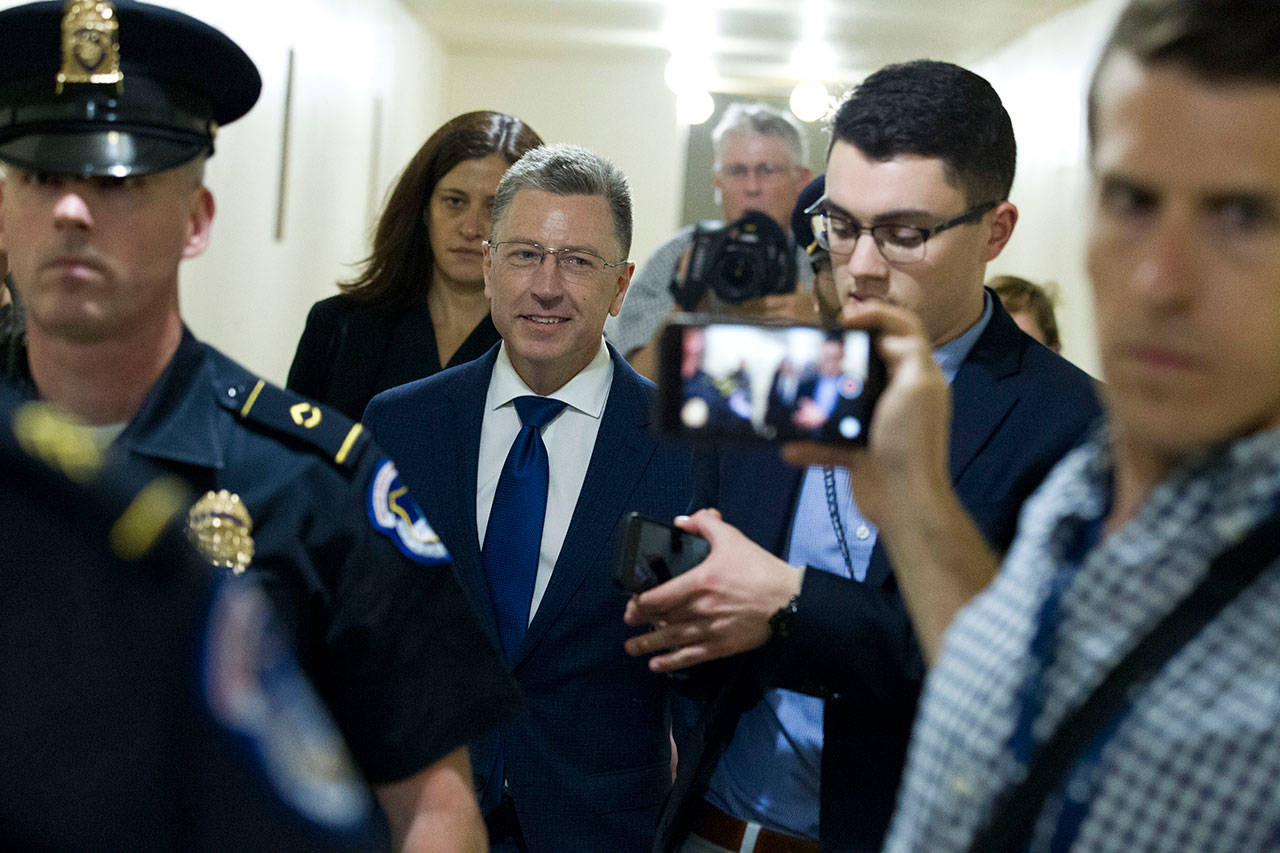By Lisa Mascaro, Eric Tucker and Mary Clare Jalonick / Associated Press
WASHINGTON — Top U.S. diplomats encouraged Ukraine’s newly elected president to conduct an investigation linked to Joe Biden’s family in return for a potentially high-profile visit to Washington with President Donald Trump.
That’s according to a cache of text messages released late Thursday by House investigators following a 10-hour interview with one of the diplomats, Kurt Volker, who stepped down as special envoy to Ukraine amid the Democrats’ impeachment inquiry.
The pages of text messages convey a distinct campaign among the three diplomats, who — apparently against some of their stated better judgment — appear to be trying to help Ukraine reset its relationship with Trump by pushing his interest in investigating his Democratic rival.
Volker, in a text message on the morning of a planned July 25 phone call between Trump and Ukraine President Volodymyr Zelenskiy, wrote: “Heard from White House — Assuming President Z convinces trump he will investigate / “get to the bottom of what happened” in 2016, we will nail down date for visit to Washington.”
An adviser to the Ukrainian president appears to go along with the proposal, which entailed investigating Burisma, a Ukrainian gas company where Joe Biden’s son Hunter served on the board.
“Phone call went well,” wrote Andrey Yermak in a text to Volker later that day after the two presidents spoke. Yermak suggests several dates when Trump and Zerenskiy could meet in September.
But all that planning started to unravel when Zelenskiy’s aide tried to lock in a date for the Trump meeting before putting out the statement on the investigations.
“Once we have a date we will call for a press briefing, announcing upcoming visit and outlining vision for the reboot of US-UKRAINE relationship , including among other things Burisma and election meddling in investigations,” Yermak wrote two weeks later.
“Sounds great!” texted Volker.
Volker and the two other diplomats — William “Bill” Taylor, the charge d’affaires at the U.S. embassy in Ukraine, and Gordon Sondland, the U.S. ambassador to the European Union — discussed the statement Zelenskiy would issue in support of the investigation. As the negotiations progressed, Sondland said Trump “really wants the deliverable,” referring to Ukraine’s commitment to conduct the investigation.
Then, Trump put a hold on military assistance to Ukraine, which was depending on the funds as part of its defense of Russia.
“Need to talk with you,” Yermak wrote to Volker.
Taylor, the seasoned top diplomat in the Ukrainian embassy, conveyed his concerns and questioned whether the money was being withheld until Ukraine agreed to Trump’s demand.
“Are we now saying that security assistance and WH meeting are conditioned on investigations?” he writes.
“This is my nightmare scenario,” Taylor tells his colleagues days later. Taylor says that by withholding the Ukrainian assistance, “we have already shaken their faith in us.”
House Democrats launched the impeachment inquiry over the Ukraine matter after a government whistleblower disclosed Trump’s call with Zelenskiy and the push to have a foreign government interfere in U.S. elections.

























